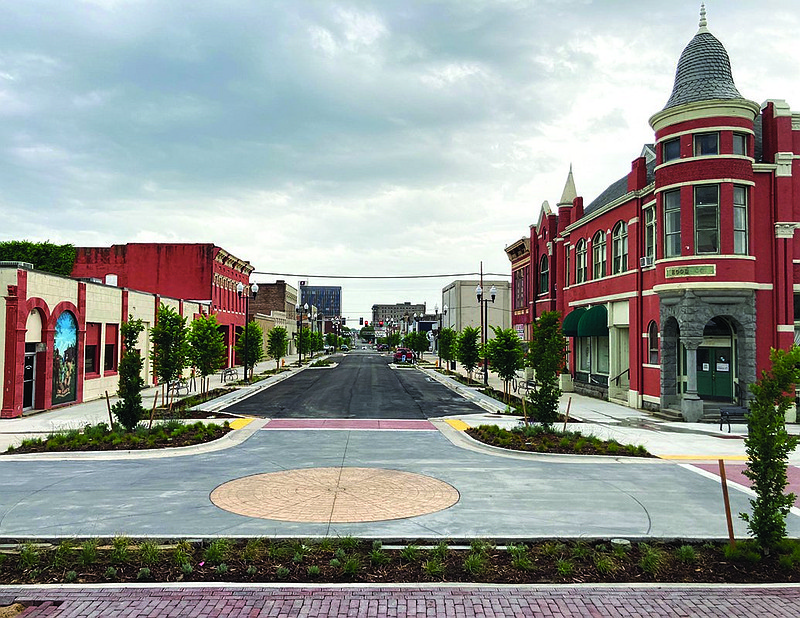A proposed change to an obscure but important bureaucratic label was defeated Tuesday after intense resistance from local leaders and bipartisan objections from members of Congress.
The Office of Management and Budget announced Tuesday that it will not change how it defines as a Metropolitan Statistical Area, an important designation for cities that need it to qualify for many federal grants and to attract businesses.
The proposed change could have affected 144 areas in 45 states and Puerto Rico, including four in Arkansas: Jonesboro, Texarkana, Pine Bluff and Hot Springs.
The designation, mostly unknown to the public, is one that many local politicians and businesses are attached to, saying that having their city lose the MSA designation could mean the loss of millions of dollars in federal grants and the ability to attract new employers.
"I think it's safe to say that we are all very pleased," said Mark Hayes, executive director of the Arkansas Municipal League. "The change, I think, would have caused an unnecessary upheaval at a time when municipalities are having to deal with far more than the normal, everyday life."
The MSA designation was created about 70 years ago as a way for the federal government to categorize cities around the United States. What started off as a useful label for demographers and statisticians eventually became a necessary hall pass to designate a place large enough to qualify for key federal grants.
The proposed change would have raised the requirements for the cities that get labeled as MSAs by the federal government.
Currently to be considered an MSA, the city that anchors its own metro area needs to have at least 50,000 residents. The proposed update would have changed the requirement to 100,000.
Jonesboro, Texarkana, Pine Bluff and Hot Springs are all MSAs with fewer than 100,000 residents.
For many federal grants, an MSA designation is required to apply. Many cities like Jonesboro, Texarkana, Pine Bluff and Hot Springs depend on those grants for updating and maintaining roads, bridges, airports and housing.
"It was a strategic threat to our area, and we're very, very pleased that we were able to garner the support and the outpouring we needed," said Allison Thompson, president and CEO of the Economic Development Alliance for Jefferson County.
Arkansas' congressional delegation also unanimously opposed the change.
U.S. Rep. Bruce Westerman of Hot Springs wrote a letter in March asking the Office of Management and Budget to reconsider the proposed change.
On Wednesday, Westerman took some credit for stopping the change, commending the agency for its decision "to reverse course on the harmful rule change."
Cities on the MSA chopping block also could have lost out as possible destinations for businesses looking to expand or relocate. Companies, and the consultants they hire, often look for MSAs when scouting sites.
"Without that designation, certainly we would have been off the list," said Mark Young, president and CEO of the Jonesboro Regional Chamber of Commerce.
In January, officials from the Office of Management and Budget proposed updating the cities that count as an MSA since the population of the country has more than doubled since the designation was created in the 1950s.
"In reviewing the 2010 standards, the committee noted that the minimum population required for an urban area to qualify a metropolitan statistical area had not kept pace with population growth of the United States," according to a report from a federal committee reviewing the matter. "They observed that the population of the United States had more than doubled since the 1950 census."
For some within the federal government, an update to what they perceived to be an outdated label seemed logical after the 2020 census. But after a public-comment period during which the Office of Management and Budget received push-back, and members of Congress stepped in to object to any change, those living in MSAs formerly on the chopping block can take a sigh of relief, at least until the next census.
In a statement announcing the decision not to change the definition of MSAs, the Office of Management and Budget said that it still will work with a federal committee to "conduct research and stakeholder outreach to inform the 2030 standards update."
